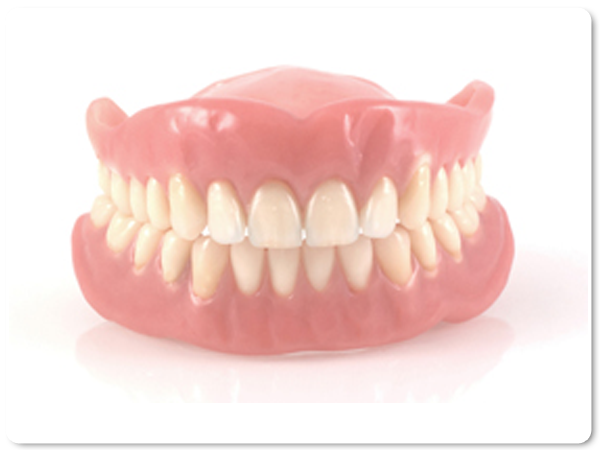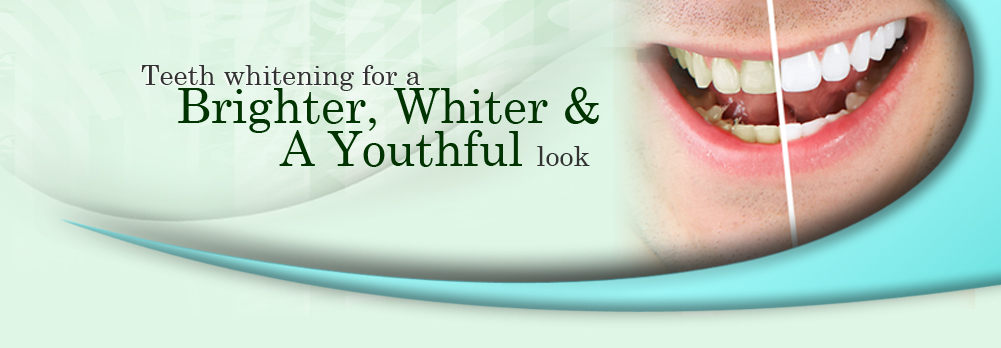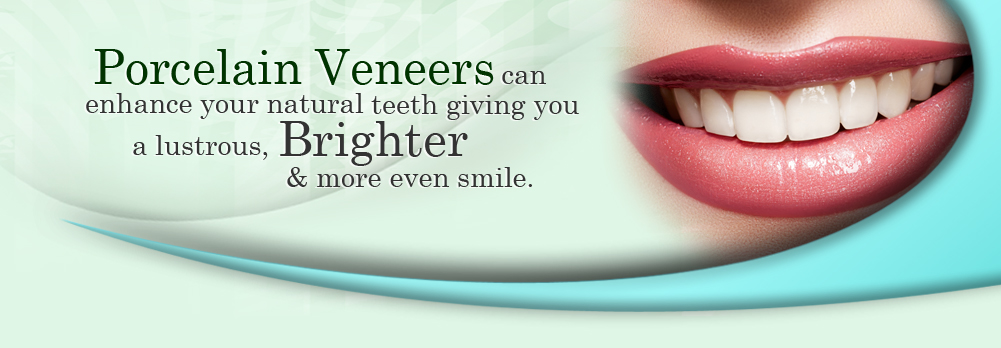Dentures (Get Your Smile Back)
What is a denture?

A denture is a removable replacement for missing teeth and adjacent tissues. It is made of acrylic resin, sometimes in combination with various metals. Complete dentures replace all the teeth, while a partial denture fills in the spaces created by missing teeth and prevents other teeth from changing position. Complete dentures are either “conventional” or “immediate.” A conventional denture is placed in the mouth about a month after all the teeth are removed to allow for proper healing, whereas an immediate denture is placed as soon as the teeth are removed. The drawback behind an immediate denture is that it may require more adjustments after the healing has taken place.
Who needs a denture?

Candidates for complete dentures have lost most or all of their teeth. A partial denture is suitable for those who have some natural teeth remaining. A denture improves chewing ability and speech and provides support for facial muscles. It will greatly enhance the facial appearance and smile.
What happens when you get a denture?
A dentist can make a full conventional denture when all teeth have been lost or all extraction sites have healed (up to eight weeks or longer.) The denture process takes about one month and five appointments: the initial diagnosis is made; an impression and a wax bite are made to determine vertical dimensions and proper jaw position; a “try-in” is placed to assure proper color, shape, and fit; and the patient’s final denture is placed, following any minor adjustments.
New denture wearers need time to get accustomed to their new “teeth” because even the best fitting dentures will feel awkward at first. While most patients can begin to speak normally within a few hours, many patients report discomfort with eating for several days to a few weeks. To get accustomed to chewing with a new denture, start with soft, easy-to-chew foods. In addition, denture wearers often notice a slight change in facial appearance, increased salivary flow, or minor speech difficulty.
How do you care for a denture?
A denture is fragile, so it is important to handle it with care. Remove and brush the denture daily, preferably with a brush designed specifically for cleaning dentures, using either a denture cleanser or toothpaste. Never use harsh, abrasive cleansers, including abrasive toothpaste, because they may scratch the surface of the denture. Don’t sterilize your denture with boiling water because it will cause it to become warped. If you wear a partial denture be sure to remove it before brushing your natural teeth. When not in use, soak it in a cleanser solution or in water. Get in the habit of keeping the denture in the same safe and handy place to reduce the likelihood of misplacement.
Should a denture be worn at night?
While you may be advised to wear your denture almost constantly during the first two weeks- even while you sleep under normal circumstances it is considered best to remove it at night. Research has shown that removing the denture for at least eight hours during either the day or night allows the gum tissue to rest and allows normal stimulation and cleansing by the tongue and saliva. This promotes the better long-term health of the gums.
Continue seeing your dentist regularly
It is important to continue having regular dental checkups so that a dentist can examine oral tissues for signs of disease or cancer. As of aging, your mouth will continue to change as the bone under your denture shrinks or recedes. To maintain a proper fit over time, it may be necessary to adjust your denture or possibly remake your denture. Never attempt to adjust a denture yourself and do not use denture adhesives for a prolonged period because it can contribute to bone loss. When in doubt, consult your dentist.











 My husband and I love Prestonwood Dental. I already wrote a review for Dr. Daftary, and realized I should write one for her practice as well, because she and her entire team are brilliant
My husband and I love Prestonwood Dental. I already wrote a review for Dr. Daftary, and realized I should write one for her practice as well, because she and her entire team are brilliant




